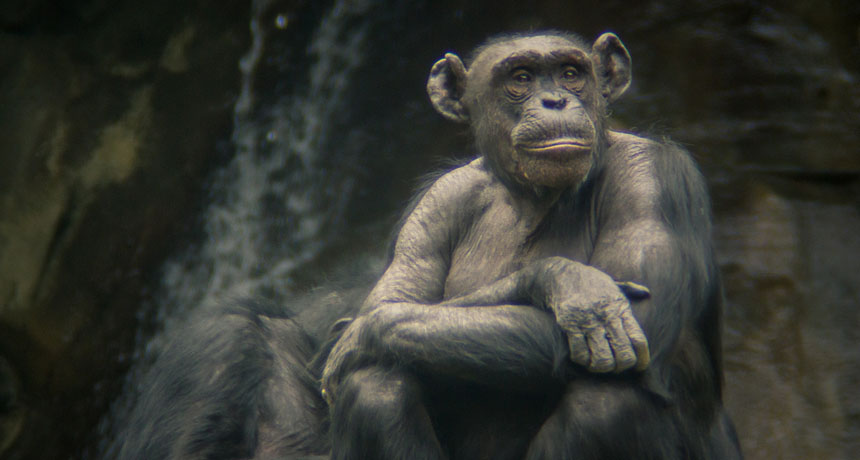Chimps raised among humans may have problems as adults

Chimps may be cute and have mannerisms similar to humans, but they are wild animals. A new study finds that chimps raised as pets or entertainers have behavioral problems as adults.
Ryan Summers/Flickr (CC BY-SA 2.0)







